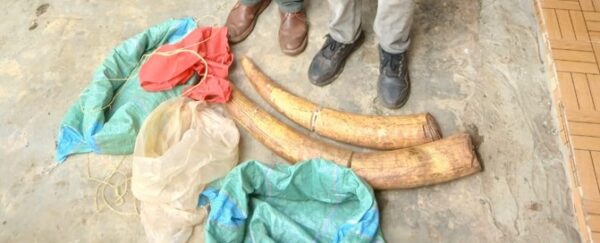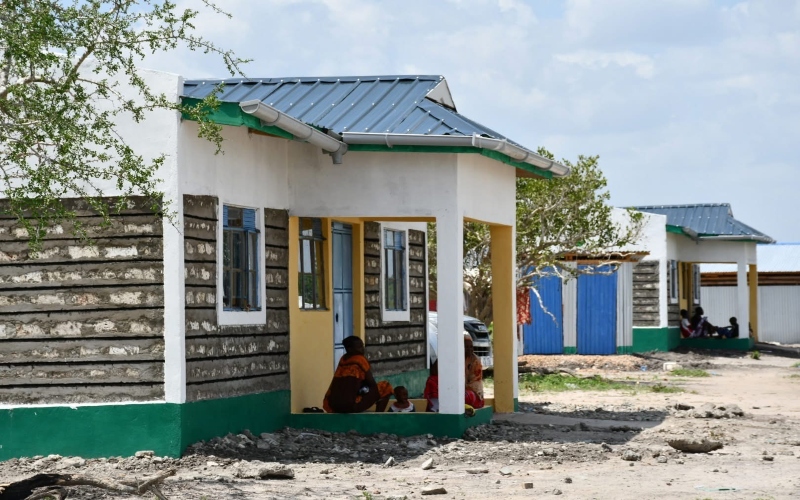Wildlife traffickers arrested in Laikipia as police seize 18kg of elephant ivory worth Sh3.6 million

Elephants continue to face serious threats as poachers target their tusks, which fetch between Sh129,284 and Sh387,854 per kilogramme on black markets in Asia and the Middle East.
Police in Nyahururu, Laikipia County, have arrested two suspected wildlife traffickers in the Kwa Wanjiku area, seizing five elephant tusks weighing 18 kilogrammes and valued at Sh3.6 million.
The suspects, Robert Kiptoo and Sinko Kedienye, were apprehended on Saturday night following a multi-agency operation led by detectives from the Directorate of Criminal Investigations (DCI).
More To Read
- Rescue mission launched to save Masai giraffes trapped by fences in Naivasha
- Rare eastern black rhino calf born in Chyulu Hills, boosting critically endangered population
- Garissa leaders oppose wildlife relocation, demand revival of dormant game reserves
- Wajir South MP condemns relocation of orphaned giraffes to Nanyuki
- Wildlife compensation claims hit Sh3.5 billion as thousands of Kenyans wait years for payments
- KWS rescues cheetah cub raised by woman in Garissa
"The traffickers were apprehended at their hideout in Kwa Wanjiku area in possession of elephant tusks weighing 18 kg, all intended for sale to a potential buyer," said the DCI in a statement on X on Sunday.
The duo is currently being held at a local police station pending arraignment later this week, as investigations continue into the origin and intended destination of the tusks.
"Following their arrest, they were quickly taken to Nyahururu Police Station along with the seized tusks, where they are currently undergoing processing before facing legal action," added the DCI.
 The elephant tusks, estimated to be worth Sh3.6 million, which were recovered from the suspects. (Photo: DCI Kenya)
The elephant tusks, estimated to be worth Sh3.6 million, which were recovered from the suspects. (Photo: DCI Kenya)
The Nyahururu arrests are the latest in a series of ivory seizures across Kenya, underscoring that poaching remains a persistent threat to the country’s elephant population.
In August, two Burundian nationals were charged in a Mombasa court for possessing and attempting to trade in elephant tusks worth over Sh12 million, in violation of Kenya’s wildlife protection laws.
Elephants continue to face serious threats as poachers target their tusks, which fetch between $1,000 (Sh129,284) and $3,000 (Sh387,854) per kilogramme on black markets in Asia and the Middle East.
Key transit hubs such as Hong Kong and Singapore play a central role in moving ivory along global trafficking routes, keeping the illegal trade alive.
Wildlife officials have warned that even with international bans, the slaughter of African elephants remains a challenge, driven by demand for ornaments and traditional medicines.
According to the World Population Review, from 1990 to 2024, Kenya seized over 130,000 kilogrammes of elephant ivory — the highest total worldwide during that period.
"China follows with 106,068 kg, with Hong Kong and Vietnam also ranking among the top countries with the most ivory seizures, at 75,706 kg and 71,255 kg respectively," said the World Population Review in a recent report.
"These staggering figures highlight both the geographic scope of the illegal ivory trade and the ongoing challenges in enforcing bans and protecting endangered wildlife."
Top Stories Today
















































